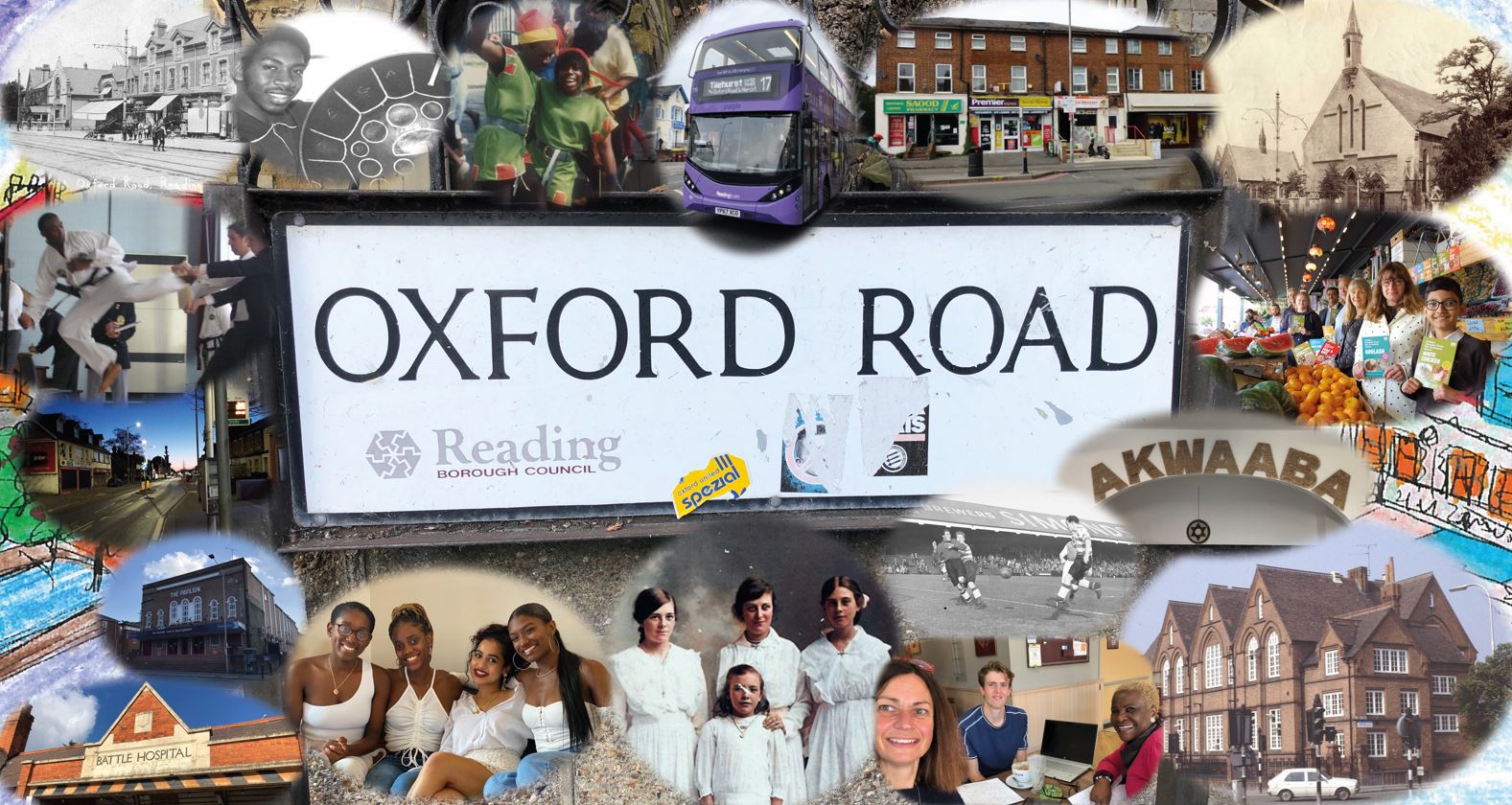Reading researchers are working with local communities and artists to reveal and celebrate the heritage of one of the town’s most diverse and multicultural streets.
With more than 70 languages spoken by its residents, Oxford Road in Reading has been fondly described as being ‘like the United Nations’. Now the rich and vibrant cultural history of this unique urban space is being celebrated and preserved through a participatory community storytelling project involving a team of student researchers from Reading.
Led by Professor Sally Lloyd-Evans as part of Historic England’s High Street Heritage Action Zone programme, the team behind the Oxford Road Project: Reimagining the High Street Through Your Stories used participatory action research methods to explore the lived experiences of the people and communities who live, work and play on Oxford Road.
Through a series of structured interviews, Alice Mpofu-Coles, Robyn Woronka and Toby Barlow, gathered information about the social history of the area along with photographs, memories and stories from local residents, to co-create a multimedia online storytelling exhibition for Reading Museum.
Three local artists were also commissioned to create artwork inspired by the stories, highlighting how each generation has contributed to enrich the history and culture of Oxford Road.
This project has significantly strengthened Reading’s existing community networks, while providing the foundation for further student-community research training and collaboration with local organisations and the arts sector.
“Oxford Road offers accessibility to the practical needs of my life with a disability, including food shops. There are friendships with other immigrants in and around Oxford Road; they are like family.”
Cyrilene Tollafield-Small, study participant who has lived on Oxford Road since 1965 (arrived with the Windrush generation aged 11)
Judges’ comment
“The project was creative with diverse outputs. The Participatory action research approach empowers citizens to co-design the research, a contrast to traditional forms of citizen science, and ensures mutual benefit is maximised.”
Team: Sally Lloyd-Evans, Alice Mpofu-Coles, Robyn Woronka, Toby Barlow
In partnership with Reading Borough Council, Baker Street Productions, UNTOLD, Lifespring Church, Reading Museum
Funded by Reading Borough Council, Historic England, University of Reading
Shortlisted for the University Research Engagement and Impact Awards 2022
First published: June 2022

